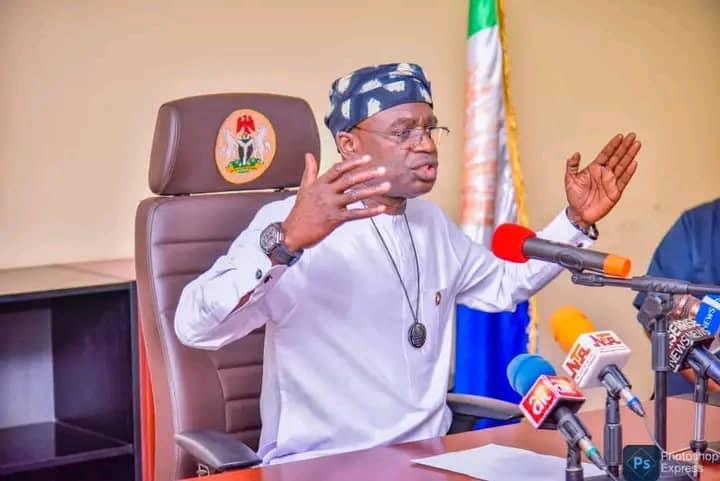Benue news
Gov Alia’s two years in office: Knocks, kudos as Benue South lament marginalization

As Governor Hyacinth Alia clocks two years in office today, May 29, reactions have poured in from across Benue State, ranging from praise for his infrastructural strides to sharp criticisms over alleged ethnic favoritism and neglect of Benue South.
Governor Alia was inaugurated in 2023 following a landslide victory that cut across ethnic, religious, and political lines.
Many saw his emergence as a breath of fresh air and a sign of unity for a deeply divided state. But two years down the line, that hope appears to be fading, especially for residents of Benue South Senatorial District.
One of the earliest signs of discontent emerged from Governor Alia’s first set of appointments. His Chief of Staff, Secretary to the State Government (SSG), Chief Press Secretary (CPS), and several commissioners were all selected from the Tiv-speaking areas, particularly his native Vandeikya Local Government Area in Benue North-East.
This sparked outrage not just in Benue South but across various political blocs who saw the pattern as a clear case of ethnic exclusion. “This is a government for Vandeikya, by Vandeikya,” an Idoma youth leader lamented. “How can a whole senatorial district be left out in such sensitive appointments?”
Despite repeated assurances of inclusivity, critics say the trend has continued, reinforcing perceptions that the administration is ethnically lopsided.
Governor Alia has rolled out several infrastructure projects during his time in office. These include:
Over 15 kilometers of township roads in Makurdi.
Ongoing underpass projects in Makurdi and Gboko.
Renovation of public buildings and schools in parts of Benue North and Central.
Supporters hail these projects as evidence of the governor’s commitment to modernizing Benue. However, residents of Benue South argue they have been largely excluded from the development wave.
“Nothing is happening in Otukpo or Okpokwu. It’s as if we’re not part of the state,” one local civil society group noted.
Even the promise of an underpass for Otukpo—meant to serve as a symbolic inclusion—remains on paper with no visible progress on site.
Perhaps the most emotionally charged criticism against Alia revolves around the issue of insecurity. While Benue continues to battle herdsmen-related violence, residents in Benue South allege that the governor only responds promptly to attacks in Tiv-dominated areas.
In April, several communities in Agatu and Apa LGAs were attacked, with scores killed. Yet, Governor Alia failed to visit the scenes or make any public statement. This contrasts sharply with his swift visits to similar attacks in Logo and Guma LGAs.
“This selective empathy is heartbreaking,” said a traditional ruler in Otukpo. “Our lives matter too.”
Some analysts also accuse the governor of politicizing insecurity, often blaming his predecessors or the federal government without taking bold, proactive steps himself.
Governor Alia’s administration has also been overshadowed by a bitter rift with his political godfather and SGF, Senator George Akume. The feud has splintered the APC in Benue, leading to parallel party structures and power struggles that have affected governance.
Despite these internal issues, Alia has maintained a tight grip on the state’s political machinery, yet critics say it has come at the cost of inclusiveness and harmony.
Supporters commend the governor for his visible infrastructure efforts, especially in Makurdi and Gboko, and for reducing corruption in civil service payrolls. They argue that his “quiet but impactful” style is yielding results.
However, groups in Benue South, including youth associations, traditional rulers, and opposition politicians, have begun mounting pressure. Some have threatened political action in the 2027 elections if the alleged marginalization is not addressed.









